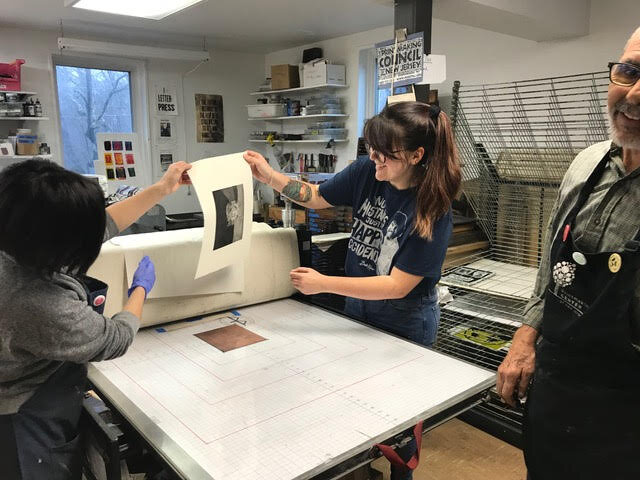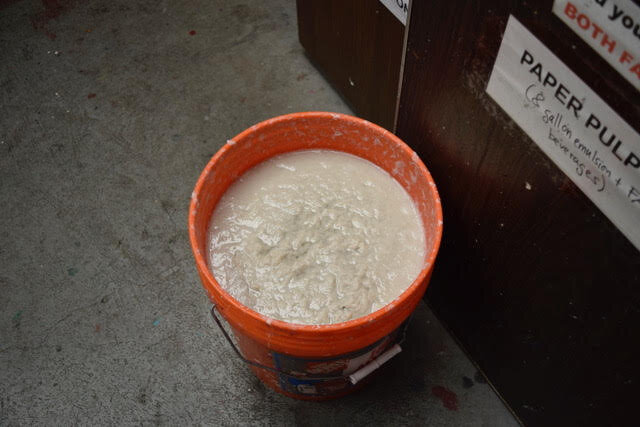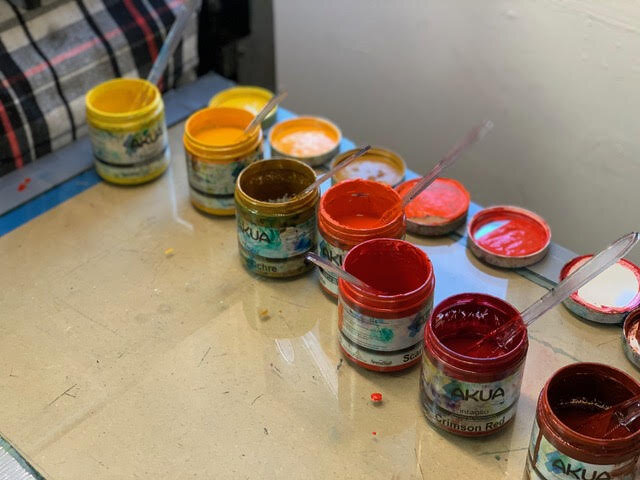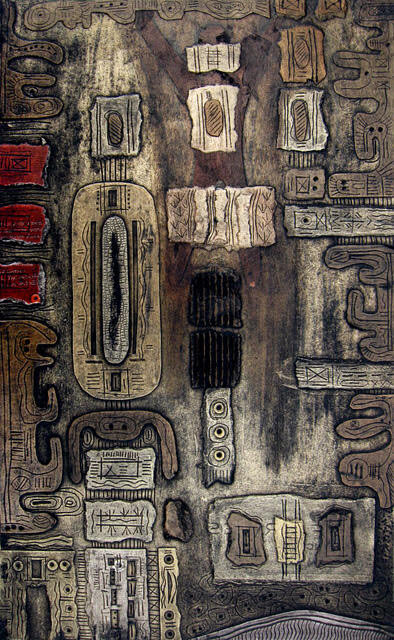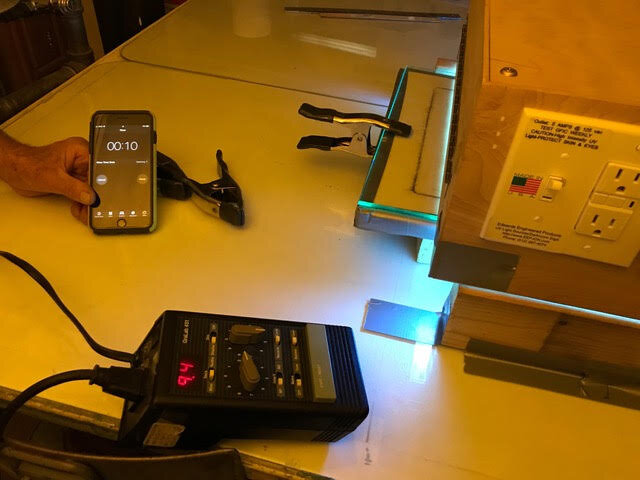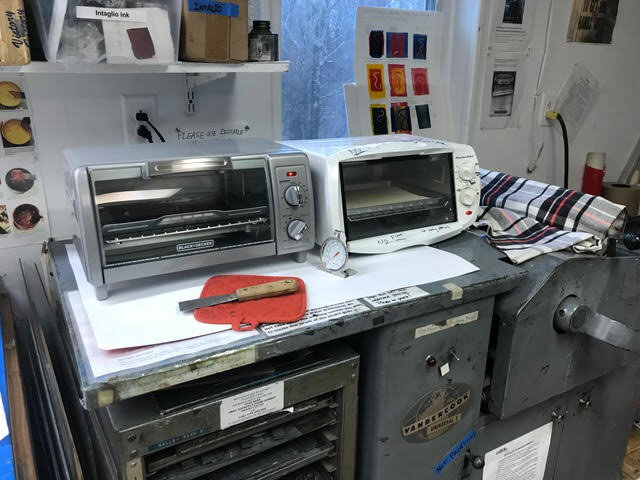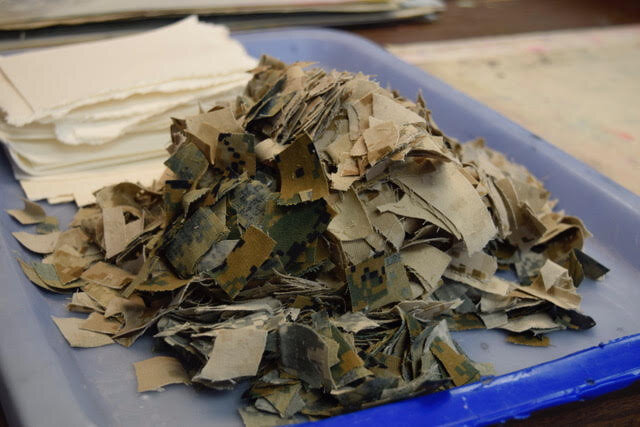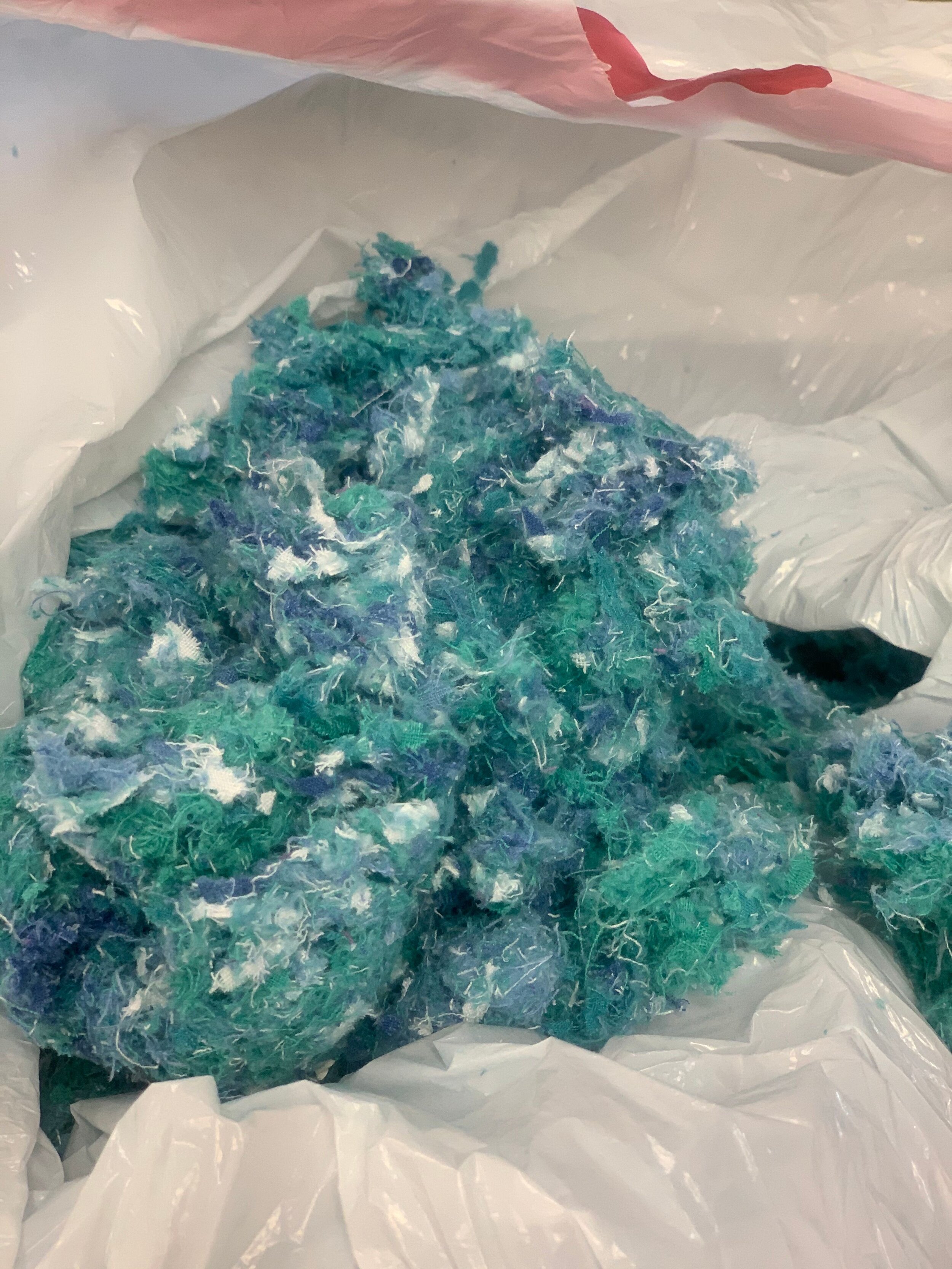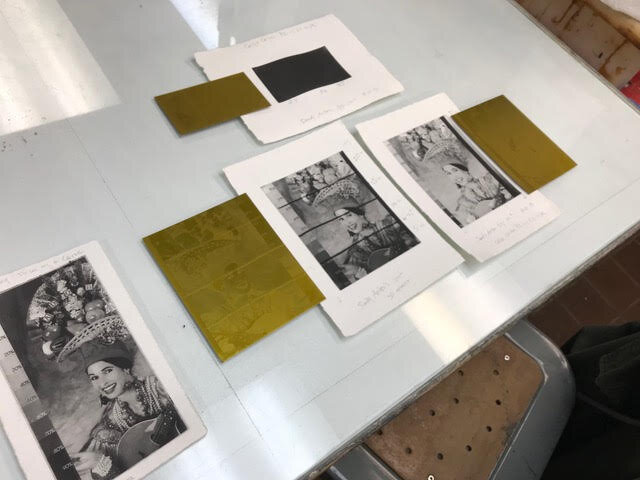Less-Toxic and Sustainable
Printmaking Practices
Frontline Arts is a workshop, gallery, educational facility and research center dedicated to the safest and most sustainable printmaking practices available. We offer workshops and private instruction in safer and non-toxic approaches to intaglio, photopolymer, lithography, silkscreen, relief and monotype printmaking. We are focused on studying and developing better studio practices which better protect the artist, environment and community. We share this information through our workshops, artist consultations and one-on-one contract printing sessions.
Lindsey Knipe and Len Merlo teaching less-toxic etching and aquatint, December 2019
Printmaking and papermaking are evolving fields,
and we constantly strive to make our studio safer
and more sustainable.
At Frontline Arts we strive to create sustainability in many ways, including:
Using water-miscible inks that clean up with soap and water (Akua, Caligo, Speedball, Charbonnel, Blick)
Using Saline Sulfate and Ferric Chloride salts instead of harsh etching acids
Using BIG ground and citrus-based & odorless cleaners to minimize use of leads, tars and heavy solvents (we use Gamsol, Isopropyl Alcohol and Simple Green as opposed to Lacquer thinner, Acetone or Mineral Spirits)
Using photo-sensitive polymer plates and films for intaglio in addition to salt-etching metals, and being careful to have proper ventillation
Recycling all paper, plastic, metal and glass (including reusing all 'bad prints' for papermaking)
Using bath towels for blotters and reusable rags instead of paper towels- to be washed/used repeatedly instead of discarded
Using compact fluorescent light bulbs in all studio fixtures, and transitioning to LED for our gallery lighting
Carefully containing synthetic fibers used in papermaking (Frontline Paper & the Scrubs Paper Project) and adding in recycled cotton rag. We do not use any permethrin or flame retardant-treated uniforms, and many items have been washed at home; we then wash again in hot water or a vinegar rinse to minimize detergent residue
Filtering synthetic microfibers and other materials from papermaking through a variety of net strainers, as well as traps and baskets in our wetroom sink and floor, being careful not to let contaminated wastewater go down storm drains by collecting debris. Then additionally filtering the remaining wastewater from the pulp-making process through a 20 gallon natural sediment filter to remove micro-plastics. This filter is made of rocks, sand, and activated charcoal and the filter media can be recycled to repeated usage.
Doing all we can to create a sustainable working environment
Frontline Arts is forward-thinking in
sustainable research, along with many other
non-toxic studios and suppliers
Printshops
Zea Mays, Florence, MA, creator of Substratum.org
Zygote Press, Cleveland, OH
Ron Pokrasso, Santa Fe, NM
Making Art Safely, Santa Fe, NM
Women's Studio Workshop, Rosendale, NY
New Directions in Printmaking, website
Non-toxic Print, website
Trefeglwys Print Studio, Wales
Printmaking Non-Toxic International, Facebook Group
Printmakers Open Forum, Oxford, PA
Tiger Lily Press, Cincinnati, OH
Suppliers and Brands
Toyobo Printight Plates (Sold by Takach)
BIG ground (sold by Takach)
Photopolymer etching plates, and Pronto Plates/Smart Plates for lithography (sold by Takach, Blick, Renaissance Graphic Arts, etc)
Caligo Safe Wash Ink (sold by Takach, Blick, McClains, Renaissance, etc)
Speedball Art (Akua Ink) (sold by Jerry's, Blick, McClains, Takach, Renaissance, etc)
Gamblin Artist Colors (ink) and Gamsol (also sold by Blick, McClains, Renaissance, Jerry's, etc)
Charbonnel Aqua Wash (sold by Blick, Renaissance, Jerry's, etc)
SoySolv II (sold by Jerry's, Takach, Renaissance)
Golden (sold by Jerry's, Blick)
D&S BioLaq, RollerWash by CS Pogue Graphics (sold by Renaissance)

